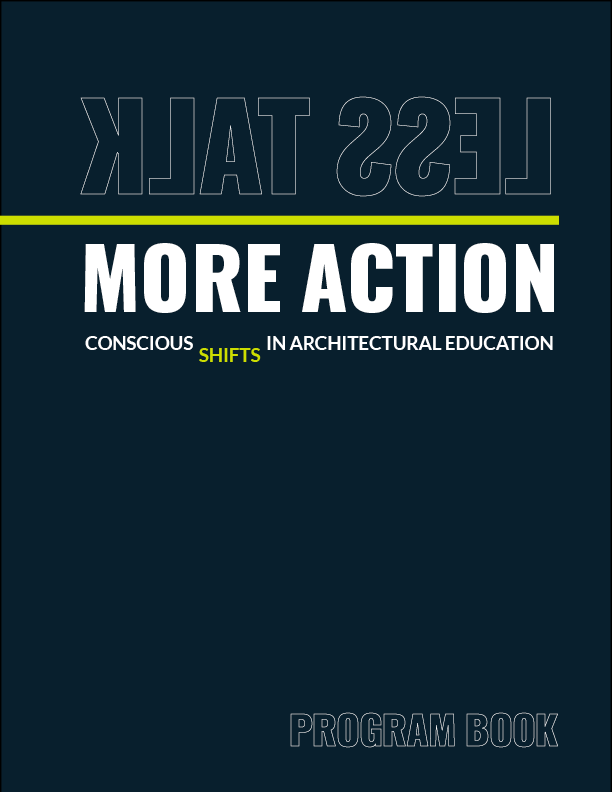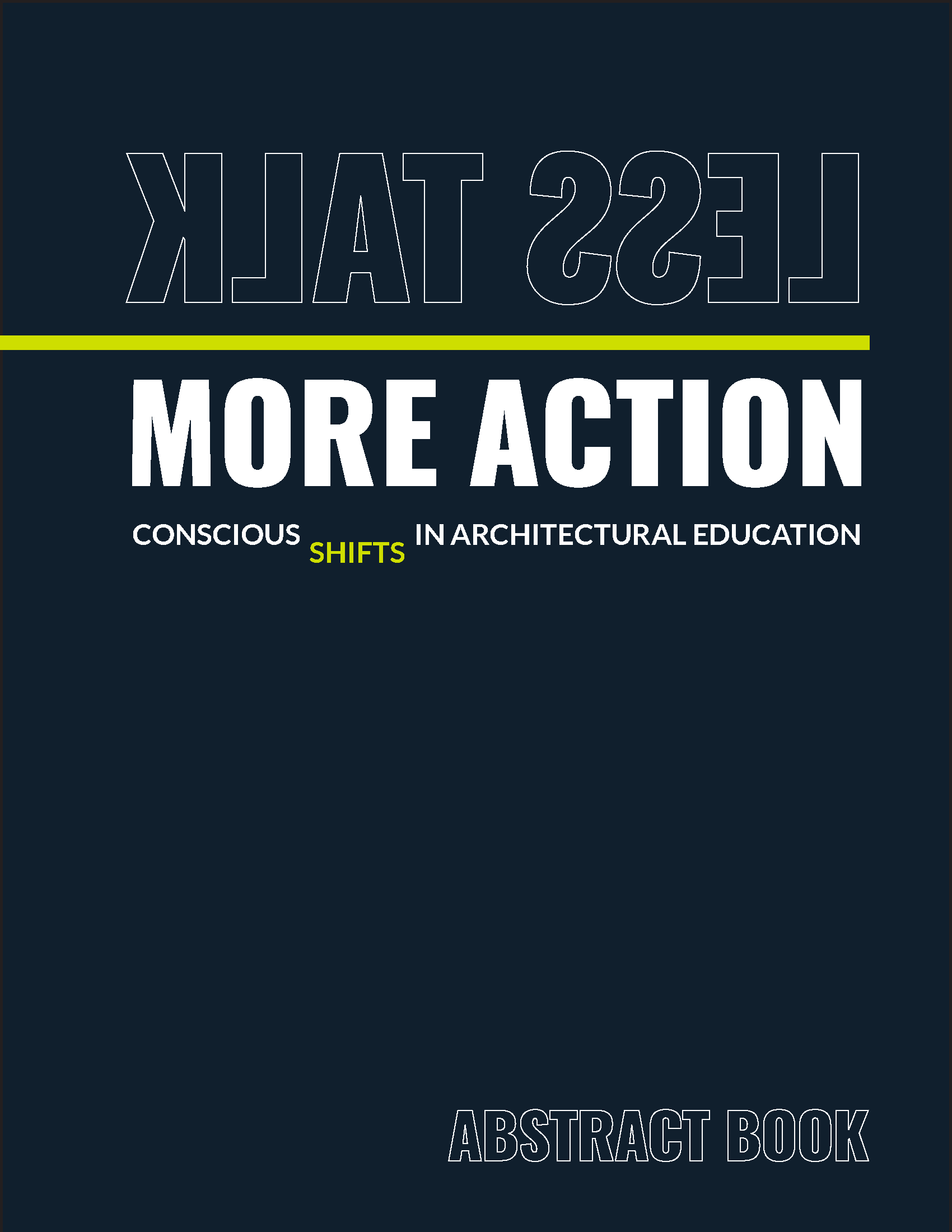September 13-15, 2019 | Stanford, California
2019 Fall Conference
LESS TALK | MORE ACTION: Conscious Shifts in Architectural Education
Chairs
Amy Larimer, Stanford Architecture
Sunil Bald, Yale School of Architecture
Conference Co-chairs
John Barton, Stanford Architecture
Deborah Berke, Yale School of Architecture
Conference Overview
Even as practice becomes increasingly expansive in its considerations, and recent research in education advocates for a more integrative curricula and pedagogy, our teaching methods and structures have remained resiliently tied to centuries-old models. Influenced by the Bauhaus structure and the Beaux Arts before it, many institutions continue to foreground design as a principally aesthetic and formal endeavor through methods that propagate hierarchal relationships within and outside schools of architecture. Technology has dramatically shifted the way architecture is practiced; yet many universities lag in a meaningful integration of tools, resources, and responsive pedagogies. While firms realize the necessity and value of collaboration, many architecture programs remain entrenched in a rigid “master-student” dynamic that doesn’t realistically prepare students for the profession.
With the rapid internationalization of education, our institutions are increasingly diverse environments. Yet, architecture schools continue to struggle with attracting and retaining under-represented minorities and our curricula remain steadfastly euro-centric in content and structure. The 2016 AIA Diversity Survey and the 2017 Women in Architecture Survey conducted by the Architectural Review reveal that not enough is changing. In our current culture of #BlackLivesMatter, #MeToo, #TimesUp and many other essential social movements, why are our educational and professional environments not better supporting and aligning with the changes needed for equity in architecture? Why are these voices not being seen, celebrated and centered in education and in our profession?
Further, current statistics around the well-being and mental health of our students are dire [e.g. 61% of college students report overwhelming anxiety, 40% report feeling so depressed it is difficult to function*]. Systemic issues in our learning environments that conflate academic rigor with irresponsible workload expectations, toxic competition, unhealthy ‘all-nighter’ ethos, and entrenched ‘master-student’ dynamics, inadequately address diversity/inclusion/equity, and fail to rebalance power in our institutions.
By bringing educators, administrators, practitioners, and students into a series of honest discussions, workshops, panels, presentations and experiences, LESS TALK/MORE ACTION will actively investigate the need for a broader, purpose-driven inquiry into architectural education – one focused on the import of an evolving pedagogy and curriculum that is responsive to the real-time needs of students, the profession, and society. We see the ACSA Fall Conference as the ideal platform for communal discussion and operational collaboration around what really matters in architectural education, what emerging practices are currently being implemented to great success, and how this can consciously shape the future of architecture.
*American College Health Association – National College Health Assessment II: Reference Group Undergraduates Fall 2017. Hanover, MD: American College Health Association; 2018.
Downloads
Purchase
Questions
Allison Smith
Programs Manager
202-785-2324
asmith@acsa-arch.org
Eric W. Ellis
Senior Director of Operations and Programs
202-785-2324
eellis@acsa-arch.org

 Study Architecture
Study Architecture  ProPEL
ProPEL 




